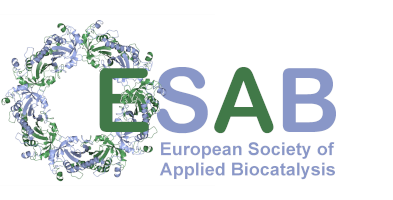Enzyme discovery and protein engineering for the synthesis of new biobased polymers
Abstract
The synthesis of renewable and sustainable polymeric materials as replacement of petroleum-based raw materials has been receiving increasing attention. Enzymes offer mild reaction conditions and often outstanding selectivity for the conversion of biobased precursor molecules into value-added chemials. In this context, the biocatalytic synthesis of biobased olefins represents an important target due to their high relevance for the production of a multitude of polymeric materials. The a-methylene lactone Tulipalin A has two polymerizable functional moieties and is a potential substitute of (meth)acrylates in vinyl-addition polymerization and (co)monomer for lactone ring-opening polymerization. While Tulipalin A can be isolated from the flowers of tulips and alstroemerias, its biosynthesis remains unknown. We propose a synthesis from isoprenyl acetate, which itself can be produced via the microbial hemiterpenoid metabolism. Selective hydroxylation of isoprenyl acetate in C4-position and subsequent oxidation of the intermediate hydroxy group gives rise to 4-acetoxy-2-methylene butyric acid, whose hydrolysis and cyclization then leads to Tulipalin A. Rational design of a membrane-bound alkane-mono-oxygenase aiming to increase its activity in the selective hydroxylation of isoprenyl acetate will be presented. Phenolic styrenes can be obtained by enzymatic decarboxylation of hydroxycinnamic acid, which are derived from the hemicellulose fraction of plants and are thus possible byproducts from the processing of corn crops, sugar beets, and rapeseed. Bacterial phenolic acid decarboxylase (PAD) catalyzes the decarboxylation under mild reaction conditions. While the activity of the enzyme is high, the low solubility of its substrates presents a severe limitations for industrial application. By ancestral sequence reconstruction (ASR), we obtained a decarboxylase variant which is significantly more thermostable (Tm=77°C) than the well-characterized PAD from Bacillus subtilis (Tm= 54°C). Application of mixtures of natural deep eutectic solvents (NADES) and water led to a further stabilization of the enzyme. The new thermostable variant offers the potential to enhance the industrial application of the process by increasing both space-time yield and productivity.
About the Speaker(s)
 Robert Kourist is full Professor of Molecular Biotechnology and head of the institute with the same name at Graz University of Technology, Graz, Austria and Leader of the Area Biotransformation at the Austrian Centre of Industrial Biotechnology. He received his diploma in biochemistry from the University of Greifswald, Germany, in 2006. After obtaining his PhD in 2008 under the supervision of Prof. Uwe Bornscheuer at the University of Greifswald, he went for one year as post-doctoral fellow to the laboratory of Prof. Kenji Miyamoto at the Keio University in Yokohama, Japan. In 2009, he received the DSM Science and Technology Award North and a 1st prize in the VentureCup Mecklenburg-Vorpommern. In 2015, he was appointed member of the Young College of the Academy of Sciences and Arts of North Rhine-Westphalia. From 2012 to 2016, he was Junior Professor for Microbial Biotechnology at the Ruhr-University Bochum.
Robert Kourist is full Professor of Molecular Biotechnology and head of the institute with the same name at Graz University of Technology, Graz, Austria and Leader of the Area Biotransformation at the Austrian Centre of Industrial Biotechnology. He received his diploma in biochemistry from the University of Greifswald, Germany, in 2006. After obtaining his PhD in 2008 under the supervision of Prof. Uwe Bornscheuer at the University of Greifswald, he went for one year as post-doctoral fellow to the laboratory of Prof. Kenji Miyamoto at the Keio University in Yokohama, Japan. In 2009, he received the DSM Science and Technology Award North and a 1st prize in the VentureCup Mecklenburg-Vorpommern. In 2015, he was appointed member of the Young College of the Academy of Sciences and Arts of North Rhine-Westphalia. From 2012 to 2016, he was Junior Professor for Microbial Biotechnology at the Ruhr-University Bochum.
Dr. Kourist’s expertise lies in the field of biocatalysis with a special focus on the development of chemo-enzymatic cascade reactions and light-catalyzed redox reactions. He has co-authored more than 100 publications and patents and has an H-index of 31 (google scholar). https://www.tugraz.at/institute/imbt/home/
